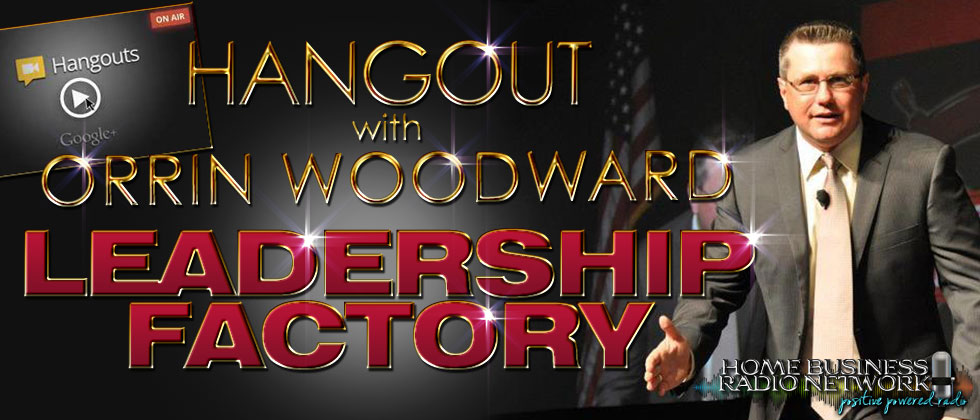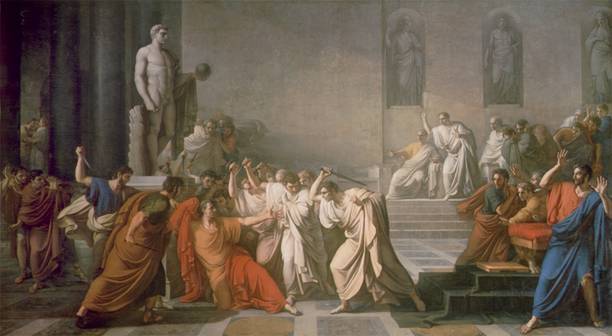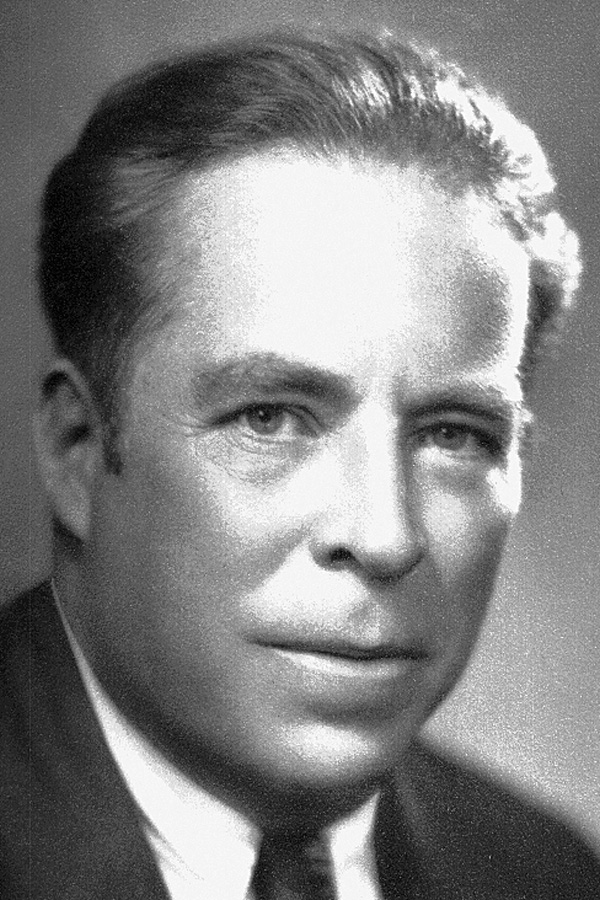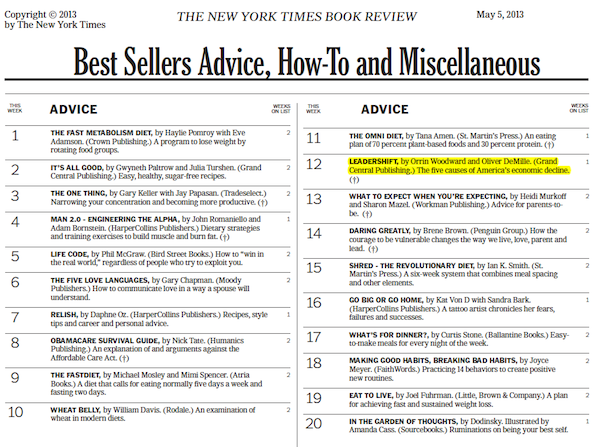Don Rush, Assistant Publisher for Sherman Publications, wrote an excellent review of LeaderShift recently in the Clarkston News. Don has won numerous awards for column, editorial and feature writing and I was very impressed by the level of detail and understanding he culled out of his first reading of LeaderShift.
I truly believe that any concerned North American, who invest the time to read the book, will finish it a different person than when he began it. The book teaches so much through the dialog and the reports of breakthroughs from different readers astounds even my high expectations of the book.
Oliver DeMille and I had a goal to help change the dialog away from more State/Force solutions and towards more Society/Persuasion solutions. Persuasion solutions require leadership while force “solutions” always resort to threat, intimidation, and losses of freedom. Thank you Don and the Clarkston News for helping create the LeaderShift! Here is Don’s article.
Sincerely,
Don’t Rush MeI’m part of the ‘99%’ and that’s a problemWhich leads me to the new book, LeaderShift |
|
|
|||||||||||||||||||
May 15, 2013 – Just this weekend I heard/read the Internal Revenue Service was busted targeting groups critical of the government. According to one on-line blog I read:
“The IRS repeatedly changed the criteria it used for singling out nonprofit applications for further review, at one point looking at all groups hoping to make ‘America a better place to live,’ according to new reports Monday morning.
“The Wall Street Journal and Reuters both reported the IRS moved beyond giving a skeptical eye to ‘tea party’ and ‘patriot’ groups. It was also targeting groups focusing on specific issues including ‘government spending,’ ‘government debt,’ ‘Education of the public via advocacy/lobbying to ‘make America a better place to live,’ and all groups that ‘criticize[d] how the country is being run.”
I don’t know about you, but that scares me and it should scare you. Talk about a government/bureaucracy run amok! This is the first we have heard of this even though the powers that be knew about this a full two years ago (in May of 2011). Holy Mother of Tyranny, Batman, how did things go so awry?
It’s been a long time since teachers at Clarkston High School forced me to read George Orwell’s Animal Farm, then 1984 and then Ray Bradbury’s Fahrenheit 451, so I will not draw any conclusions or connections there. Truthfully, that was too long ago and for important stuff I seem to have forgotten my memory.
However (coincidentally?), two weekends ago I finished reading the book, Leadershift by Orrin Woodward and Oliver DeMille. Which, in its own parablistic way explains the problem of a government bloated with money, credentialists and bureaucrats. It also offers an out of the box solution. Solutions only solved by, gulp, changing the Constitution and having taxes broke down like this: local, 4%; state 3% and federal 3% And, let me tell you since I read it, the gears in my head are turning.
It is not a work of nonfiction. It is fiction set in the not too distant future. The premiss, America’s government is broken and run by folks who want to protect their turf, and keep the status quo.
Shift back to recent developments about the IRS. Does anybody see any parallels between Leadershift’s antagonists?
I recommend folks get their hands on this book and read it. And, then get ready to re-read it whilst taking notes, so you can do further research to see if facts portrayed as such, are really true.
For example, in the book I read folks in colonial America were really involved with their local township — and if you were a voting member of the town and you didn’t attend, you could be fined. America’s founders, the authors contend, wrote the Constitution but messed up, because they just figured Americans would always be involved, know the issues, read the laws and ask questions . We don’t and this has allowed more and more power to be usurped by career Washington, DC types.
Which leads me to the headline, “I’m part of the 99% and that’s a problem.” First, while I may be included in the slack-festers of a few years ago who protested the “unfairness” of America (because I can be described by my wealth as a Hundredaire), I am not talking about these folks.
I am talking about the 99% of the voting population who doesn’t attend their local government meetings, or watch broadcast of said meetings, or even read newspaper accounts of local village, township, city or school board meetings. That’s a problem which I am a part of.
I’ve justified not attending local meetings because I used to cover tons of them as a young community newspaper journalist. And let me tell you, these meetings are boring and many times they left bad tastes in my mouth because of the pettiness found there. Like I said, it was my justification for not attending.
Crappy politicians are not born in Washington, DC or in Lansing, Michigan. They start out locally. Then the “cream” of the crop rise to county seats, and so on. I challenge everybody to call their county commissioner and ask them what they learned their first year in office. Here’s how you can tell if that person is honest with you or lying.
“It’s was great. It was democracy in action,” is what the liar will tell you.
“It was an education. The party leaders would come in and tell us how we were gonna’ vote,” is something I’ve heard personally from the mouths of county commissioners.
Do you feel warm and fuzzy now? You shouldn’t. I don’t. Back to Leadershift. Once you read it, your reading isn’t done. You will have to follow up by researching Alexis de Tocqueville’s Democracy in America; the Federalist Papers (in particular Paper 51), 1913 in American history; Twilight of Elites by Christopher Hayes and anything about leadership.













